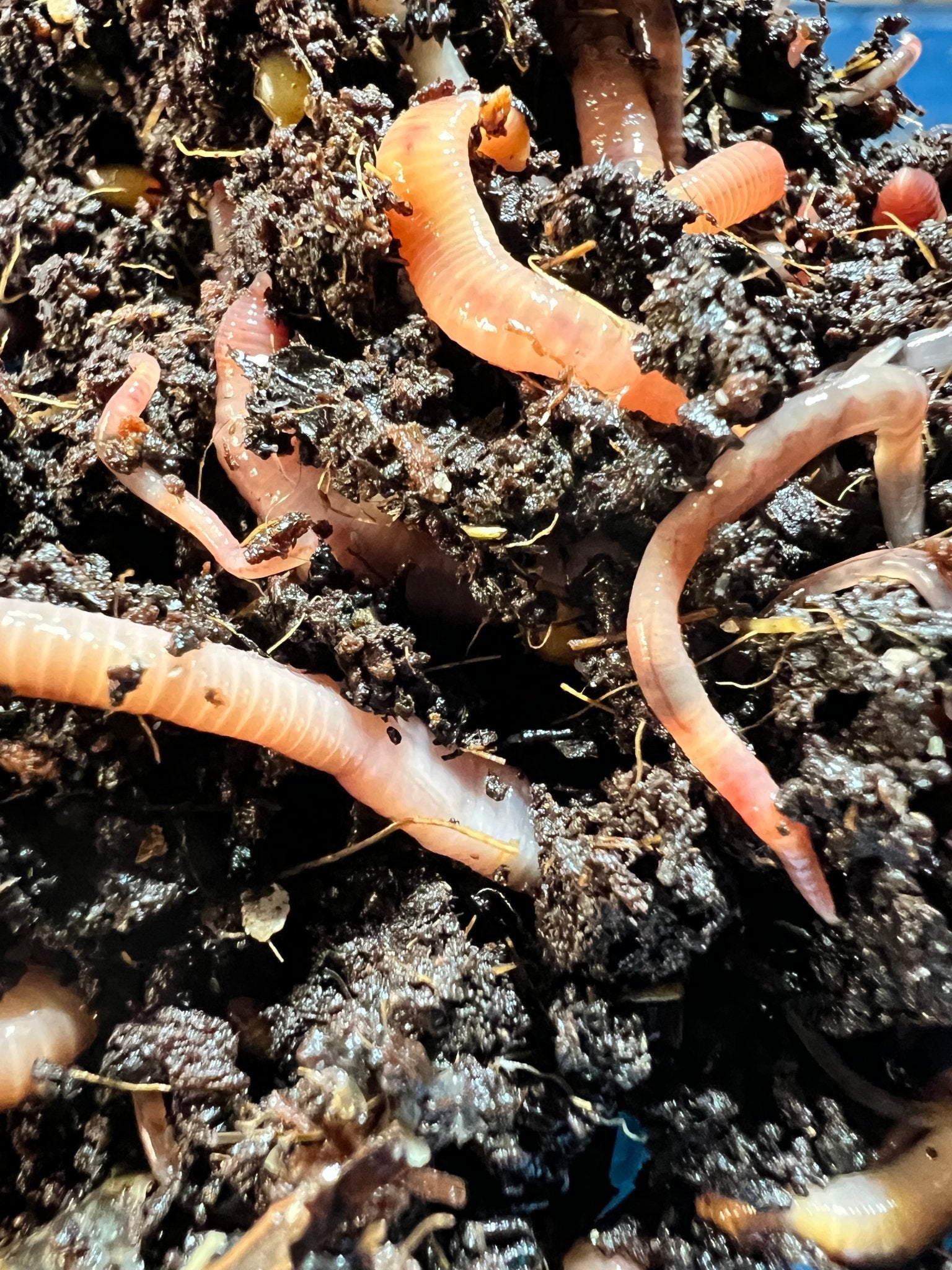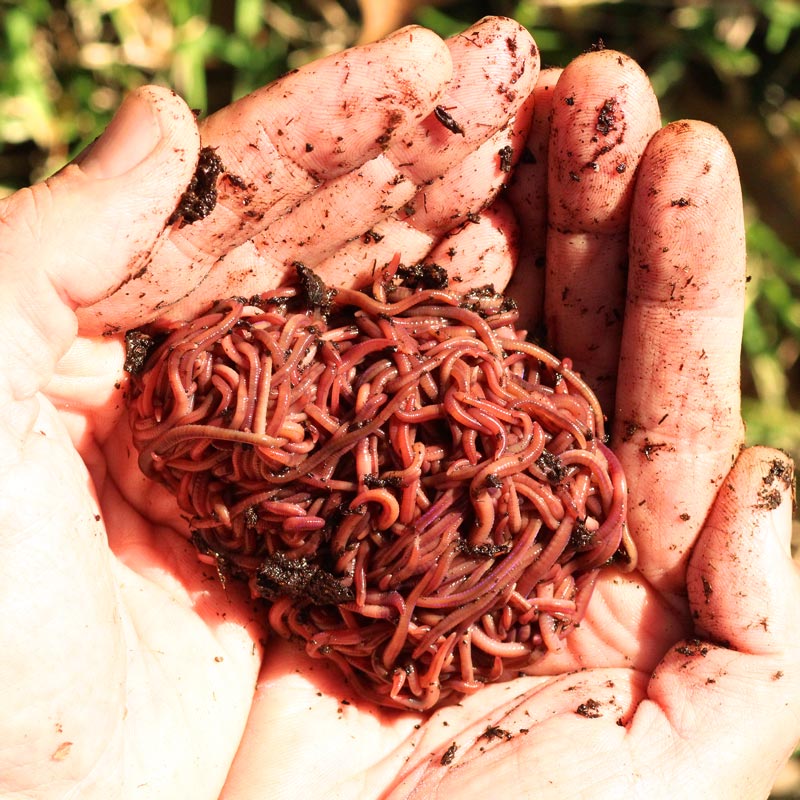Discover How Lake Hickory Bait Can Boost Your Lawn’s Growth and Vitality
The Amazing World of Red Wigglers: Increase Your Dirt Fertility Today
These little yet reliable organisms change organic waste into beneficial worm spreadings, dramatically improving dirt health and wellness and promoting sustainable methods. As we check out the advantages of vermicomposting and the sensible steps to develop a reliable worm bin, the potential effect of these worms on your horticulture success becomes progressively obvious.
Comprehending Red Wigglers
Red wigglers, scientifically known as Eisenia fetida, are a types of earthworm that play an important role in improving dirt fertility. These worms flourish in organic-rich environments, such as compost stacks and decomposing plant product, where they eat natural waste and secrete nutrient-dense castings. Their unique makeup, including a segmented body and a clitellum, permits them to recreate quickly and effectively procedure huge amounts of organic issue.

The eco-friendly significance of red wigglers prolongs beyond mere waste handling; they add to the dirt food internet, cultivating a diverse neighborhood of bacteria that even more improve soil health. Recognizing the biology and habits of red wigglers is crucial for harnessing their full capacity in lasting agriculture and gardening techniques.
Benefits of Vermicomposting
(Red Wiggler Express)Harnessing the power of red wigglers via vermicomposting offers many advantages that significantly boost dirt wellness and fertility. One of the main advantages is the production of nutrient-rich worm castings, which are an excellent all-natural fertilizer. Red Wiggler Express. These castings consist of important nutrients like nitrogen, phosphorus, and potassium, promoting robust plant growth and boosting plant returns
In addition, vermicomposting improves dirt structure and aeration. The presence of worm spreadings boosts dirt structure, enabling for better water retention and drain. This well balanced dampness level is important for root advancement and the total wellness of plants. Additionally, red wigglers aid break down raw material, accelerating decomposition and reusing nutrients back right into the soil.
Vermicomposting likewise promotes microbial activity, which is essential for a healthy and balanced dirt ecosystem. Beneficial bacteria flourish in the presence of worm spreadings, helping in the breakdown of organic materials and enhancing vitamins and mineral schedule to plants.
Last but not least, vermicomposting acts as a reliable waste administration option, decreasing landfill waste by recycling kitchen scraps and other natural materials. This not only adds to ecological sustainability yet likewise promotes a circular economic climate within gardening and farming.
How to Establish Up a Worm Bin
Setting up a worm container is a straightforward procedure that can significantly improve your composting efforts. Begin by choosing a proper container, which can range from a commercially available worm container to a basic plastic or wood box (Red Wiggler Express). Ensure the container has appropriate ventilation; little holes in the lid and sides will certainly help with air circulation
Next, create a bedding layer to provide a comfortable setting for the red wigglers. This can be made from shredded newspaper, cardboard, or coconut coir, dampened to a damp, sponge-like uniformity. Load the bin to about one-third full with this bedding material.
When the bed linen is prepared, it's time to introduce the worms. Red wigglers flourish in natural waste, so area them gently onto the bedding. Cover the worms with a light layer of additional bed linens to aid them accommodate.
Feeding Your Red Wigglers
Providing the right food for your red wigglers is essential for their health and the performance of your composting system. Red wigglers thrive on a varied diet, mainly consisting of organic products such as fruit and veggie scraps, coffee grounds, and shredded paper. These products not only supply vital nutrients but likewise contribute to the microbial task in the worm container, which is critical for the worms' digestion.
It is necessary to prevent specific foods, such as dairy products, oils, and meats, as these can draw in bugs and create unpleasant odors. Additionally, citrus peels and excessively hot foods ought to be restricted as a result of their potential to damage the worms. A balanced strategy to feeding includes keeping track of the quantity of food presented to the bin, making certain that it is consumed within a reasonable period to prevent excess waste build-up.
To promote optimum food digestion, it is useful to cut or shred bigger food products before including them to the container. This technique boosts the area for microbial action, facilitating quicker decay and boosting the overall effectiveness of your composting system. Frequently observing the worms' feeding practices will help you change their diet find as needed.
Making Use Of Worm Spreadings in Your Garden

(Lake Hickory Bait)Integrating worm spreadings right into your yard can be achieved by blending them right into the dirt or using them as a top clothing. The slow-release nature of these spreadings ensures that nutrients are readily available to plants over an extended period, reducing the need for synthetic plant foods. Additionally, worm spreadings consist of advantageous bacteria that promote healthy dirt environments, improving the overall resilience of your yard.
To make best use of the benefits, purpose to apply roughly one part worm castings to three components soil in your growing beds. Regular applications can result in boosted plant yields and healthier plants, making worm spreadings an indispensable resource for both newbie and seasoned garden enthusiasts alike. By using this natural change, you can grow a successful yard while adding to sustainable gardening methods.
Final Thought
Finally, red wigglers exemplify the essential duty of vermicomposting in improving soil fertility. Their capacity to convert organic waste into nutrient-rich castings significantly improves dirt framework and supports microbial variety. Establishing a vermicomposting system not only promotes sustainable horticulture practices but also adds to ecological health and wellness. By leveraging the advantages of these impressive organisms, gardeners can cultivate a lot more efficient and durable environments, ultimately cultivating a more sustainable method to agriculture and horticulture.